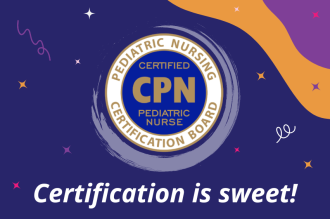The Pediatric Nursing Certification Board (PNCB) stands with the Professional Certification Coalition (PCC) in opposition of Ohio’s proposed legislation H.B. 263. This bill would deny licensing and certification boards the ability to independently consider relevant underlying facts of an applicant’s past convictions when deciding eligibility for and/or maintenance of credentials. PNCB has sent a letter in opposition to this bill to the Ohio House of Representatives.
Licensure and certification convey fitness to practice a profession safely and competently, without harming public safety, health, or welfare. As currently drafted, however, H.B. 263 fails to provide that protection to the public. PNCB appreciates that this bill aims to advance the important goal of reducing recidivism by making it easier for an ex-offender to earn a living in certain occupations. Unfortunately, in its current form, H.B. 263 removes important protections for the public and could have an adverse effect on private certification organizations’ enforcement of their ethics codes or eligibility requirements.
Not all professions are the same, nor are all criminal convictions. Here is a pediatric-specific illustrative scenario demonstrating why boards must independently evaluate past conduct for relevancy: An applicant was charged with child sexual abuse but entered into a plea deal to plead guilty to a child endangerment charge, while admitting the underlying facts; five years have now elapsed since completion of the applicant’s sentence, and the applicant seeks a license in a profession that would place the applicant in unsupervised contact with a child.
As this example demonstrates, the current structure of H.B. 263 exposes the public to substantial risks by forcing licensing authorities to ignore an applicant’s history simply due to the passage of time, mandating approval of a license unless the authorities can meet a clear and convincing evidence standard, and requiring authorities to develop comprehensive knowledge of the elements of all criminal offenses so that they can develop lists of disqualifying offenses.
PNCB and PCC recommend amending H.B. 263 to instead adopt a structure similar Pennsylvania Senate Bill 637, which was enacted into law earlier this year. This bill is an ideal model for criminal conviction history legislation because it strikes a balance between the very worthwhile goal of reducing barriers to entry for ex-offenders while ensuring that licensing boards make individualized assessments to determine whether an applicant poses an unacceptable risk to those with whom the applicant would interact while practicing an occupation/profession.
PNCB applauds Ohio for advancing important pathways to employment opportunities for ex-offenders through H.B. 263. We hope that our respectfully submitted request will result in an amended bill as suggested above to better protect the public and preserve the public’s trust in licensed and certified professionals. PNCB feels strongly that Ohio can achieve a careful, case-by-case balancing of the State’s interest in protecting the public, identifying and eliminating unwarranted barriers to entry into an occupation, and protecting the value of already issued licenses and certifications.
Download a PDF version of this Statement here.



